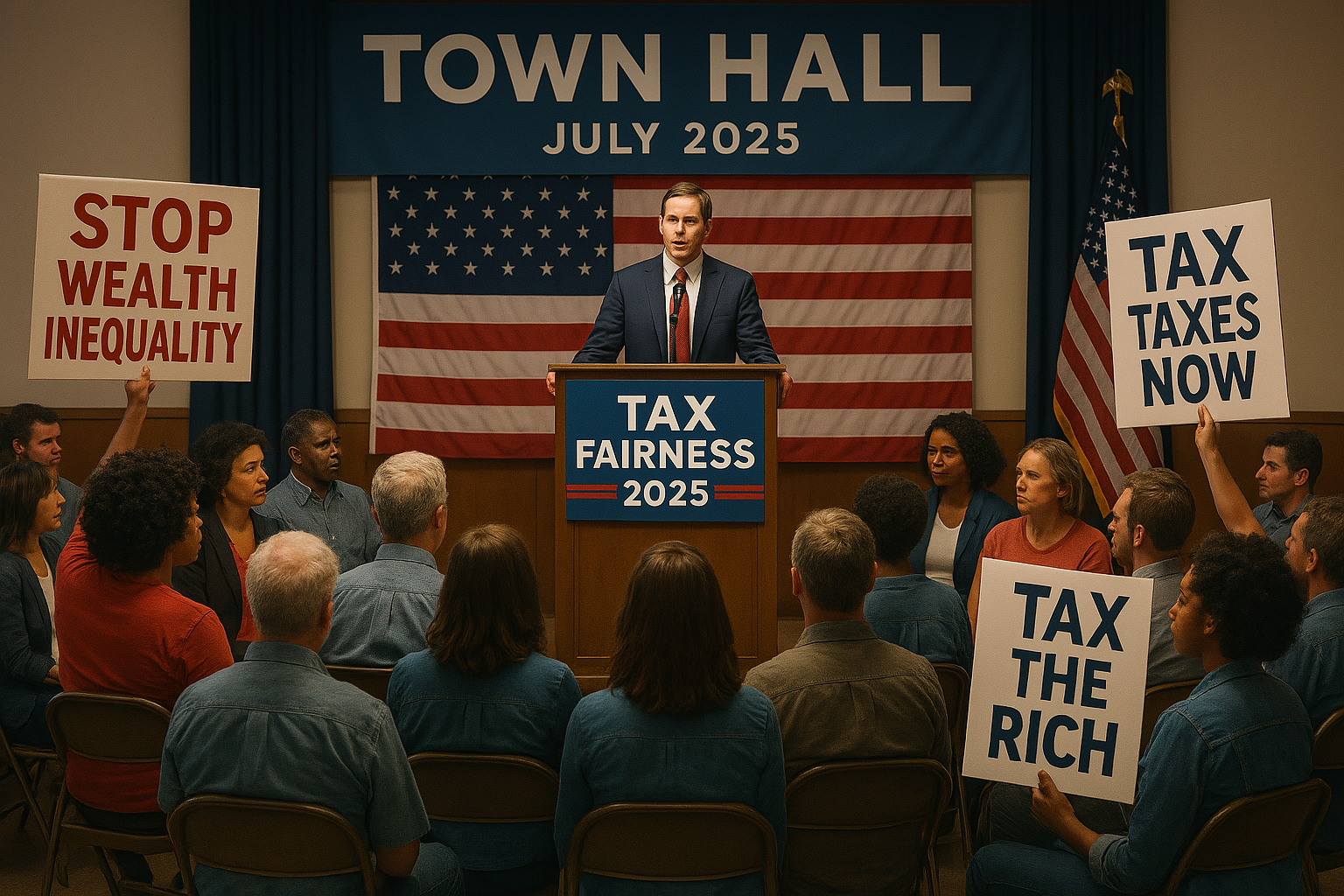Trump Tax Law 2025: 52% Oppose, See Benefits for Wealthy

The Trump tax law 2025, a sweeping tax-and-spending package, has sparked significant public discontent, with 52% of Americans opposing it, according to a recent poll conducted from July 16 to July 20, 2025. Many view the law as a boon for wealthy households and corporations while potentially hurting low-income communities and widening federal budget deficits. As the 2026 midterm elections approach, this skepticism poses challenges for Republicans defending their congressional majorities and offers Democrats an opportunity to rally voters. This article dives into the poll’s findings, public sentiment, political implications, and what’s at stake for the nation’s economic future.
Poll Findings: Public Views on the Tax Law
A national survey revealed that 52% of respondents disapprove of the Trump tax law 2025, highlighting concerns about its fairness and economic impact. Key findings include:
- Favoritism Toward the Wealthy: A majority believe the law primarily benefits high-income households and large corporations.
- Harm to Low-Income Groups: Respondents fear it will disadvantage poorer communities, potentially cutting social programs.
- Budget Deficit Worries: Many see the law as exacerbating federal deficits, with projections estimating a $1.2 trillion increase over a decade, per 2025 CBO estimates.
- Limited Support: Only 34% approve of the law, with 14% undecided, signaling a tough sell for its proponents.
The poll, conducted over five days, reflects a broad cross-section of American voters, capturing sentiments from urban and rural areas alike.
Political Challenges for Republicans
The unpopularity of the Trump tax law 2025 presents a hurdle for Republicans as they head into the 2026 midterms, where their slim House and Senate majorities are at stake. The law’s perceived tilt toward the wealthy undermines GOP messaging about economic growth and job creation. For example, while the law includes corporate tax cuts aimed at stimulating investment, only 28% of respondents believe it will create jobs, per the survey.
Republicans face the task of reframing the narrative. House Speaker Mike Johnson, in a July 2025 press conference, emphasized that the law “puts more money in Americans’ pockets.” However, with 60% of middle-class voters in the poll feeling their tax benefits are minimal compared to corporate gains, the GOP must overcome a perception gap to maintain voter support.
Democratic Opportunities
Democrats are seizing on the poll’s findings to position the tax law as a symbol of economic inequity. Senate Minority Leader Chuck Schumer, speaking on July 22, 2025, called it “a giveaway to the ultra-rich while everyday families struggle.” The party plans to highlight cuts to social programs, like Medicaid, which the law partially funds through reduced federal spending. X posts from users like @EqualEconomy2025 reflect this sentiment, with one stating, “Trump’s tax law helps billionaires, not workers.”
Democrats aim to leverage this discontent to flip congressional seats in 2026, particularly in swing districts where economic fairness resonates. A 2025 DNC strategy memo outlined plans to focus on “kitchen table issues,” tying the law’s unpopularity to broader affordability concerns.
Public Sentiment and Key Concerns
The poll reveals deep public unease about economic fairness and fiscal responsibility:
- Wealth Inequality: 65% of respondents believe the law widens the wealth gap, a concern amplified by 2025 Oxfam data showing the top 1% own 32% of U.S. wealth.
- Deficit Impact: With federal debt at $34 trillion in 2025, 58% worry the law’s tax cuts will strain future budgets.
- Limited Personal Benefits: Only 22% of respondents report noticeable tax savings, despite the law’s promise of middle-class relief.
On X, @VoterVoiceUS wrote, “Why cut taxes for corporations when families can’t afford groceries?” This reflects a broader sentiment that the law’s benefits are unevenly distributed, a view echoed in comments on platforms like Reddit.
Broader Implications
- Economic Policy Debate: The Trump tax law 2025 reignites debates over trickle-down economics, with critics arguing it repeats the flaws of past tax cuts, like the 2017 TCJA, which added $1.9 trillion to deficits, per CBO.
- Midterm Dynamics: The law’s unpopularity could shift voter turnout, particularly among independents, who make up 41% of the poll and lean against it by 55%.
- Trump’s Resilience: Despite the law’s opposition, President Trump’s approval rating remains steady at 46%, per the poll, suggesting his personal appeal may insulate him from policy backlash.
- Long-Term Fiscal Risks: Economists warn that unchecked deficits could raise interest rates, impacting housing and small businesses, a concern for 2026 voters.
Challenges Ahead
Republicans must counter the narrative that the law only serves the wealthy, possibly by highlighting small-business tax breaks or job growth data. Democrats face the challenge of offering a clear alternative, as their 2025 tax proposals remain vague. Both parties must navigate a polarized electorate, with 2025 Gallup data showing 68% of Americans view wealth inequality as a top issue. Misinformation on X, like @PatriotFacts’ claim that “tax cuts paid for themselves,” complicates public understanding, underscoring the need for clear communication.
Conclusion
The Trump tax law 2025 faces significant public opposition, with 52% of Americans skeptical of its benefits and worried about its impact on the poor and federal deficits. As the 2026 midterms loom, Republicans struggle to sell the law’s advantages, while Democrats see a chance to capitalize on voter discontent. The debate highlights deeper concerns about economic fairness and fiscal responsibility, shaping the political landscape. Share your thoughts on the tax law below, and stay tuned for updates on its impact.










